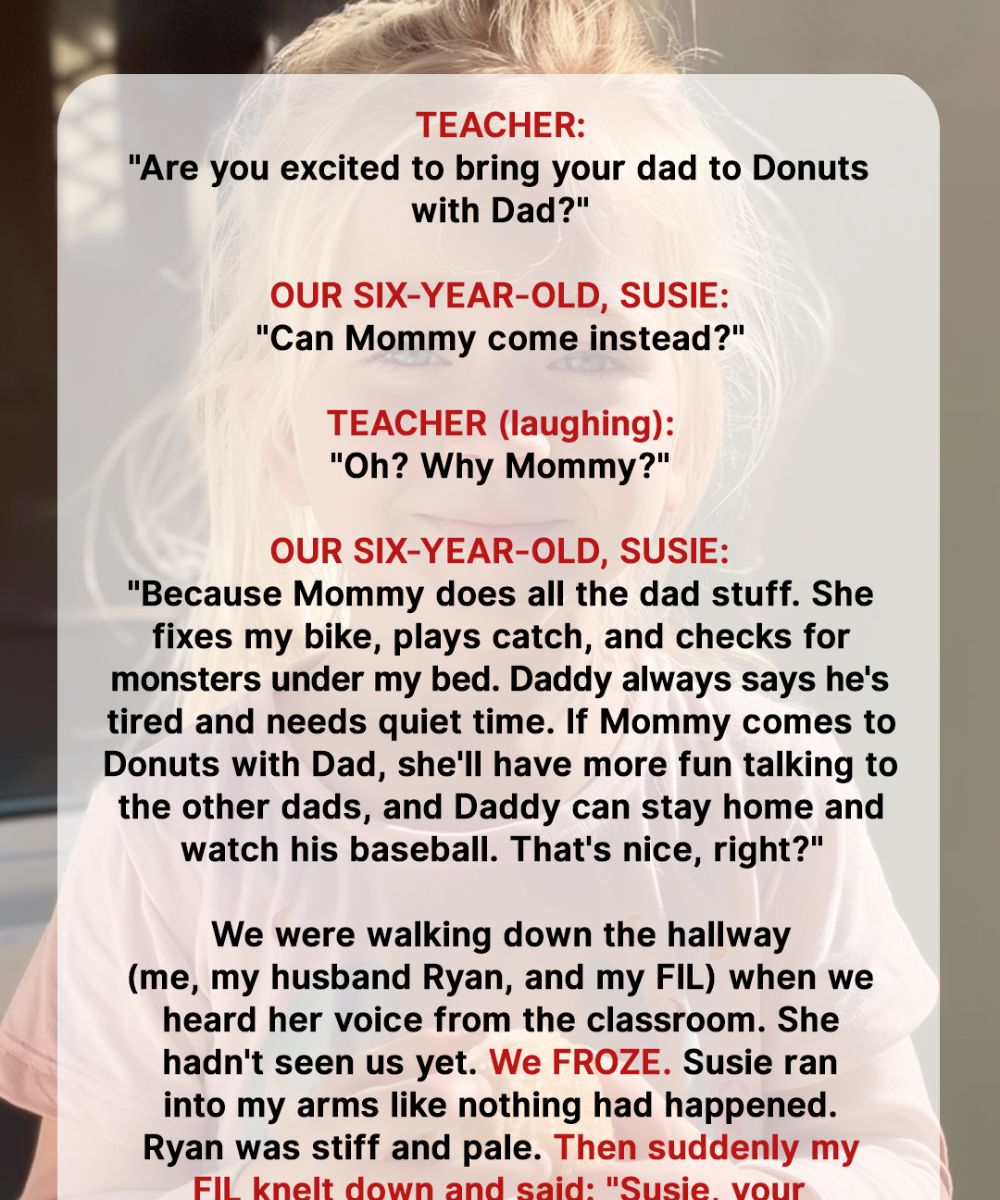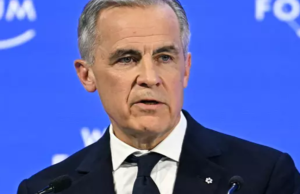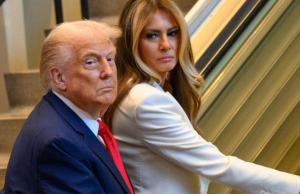
Ryan was always a good man. Steady, loyal, hardworking. And when our daughter, Susie, was born, we settled into roles that made sense—at first.
He worked long hours at the firm. I worked remotely, often bouncing Susie on my knee during meetings. I became the one who handled it all: the doctor’s appointments, the bedtime routines, the scraped knees, the exact way Susie liked her apples sliced. He helped occasionally—with the dog, maybe. I convinced myself it would balance out.
But it didn’t. As I climbed the ladder at work, I was also holding the household together with threads pulled taut. The invisible labor stacked up—field trips, lunches, lost socks, birthday RSVPs—all filed in my brain, running constantly like a never-ending checklist.
Ryan didn’t intend to rely on me this way. He just did. And I let him.
Every time I brought it up, his answers were the same.

“I’ll help this weekend, I promise.”
“Just remind me, babe.”
“I don’t know how you do it all.”
Neither did I. But I did. Not because I was some superhero mom—but because I loved our daughter. And I loved him.
Over time, I began to fray. Deadlines were missed. Dinners burned. I forgot a friend’s baby shower. And instead of allowing myself grace, I felt like I was failing.
Resentment crept in—not loudly, but slowly, like a chill you don’t notice until you’re shivering.
Then came the day it all cracked open—unexpectedly, through the clear voice of our six-year-old.
It was a Wednesday. Ryan had taken the afternoon off to pick up Susie, and his dad, Tom, tagged along. The school halls were filled with glittery posters: “Donuts with Dad.” Kids were buzzing with excitement.
As we walked down the hallway, I heard Susie’s voice from inside her classroom.
“Are you excited to bring your dad to Donuts with Dad?” her teacher asked.
Susie replied with complete sincerity, “Can my mommy come instead?”
There was a pause. “Why Mommy?”

“Because Mommy does the dad stuff. She fixes my bike, throws the ball, checks for monsters, and makes the best lunches. Daddy’s always tired and needs quiet time. I think Mommy will have more fun at school. Daddy can watch his baseball game at home.”
I froze. Ryan went rigid beside me. The hallway suddenly felt too quiet.
There was no spite in her voice. Just innocence. Truth, spoken plainly.
Susie hadn’t meant to shame her father. But her words cut deep—because they were honest.
She spotted us a moment later and came running, arms wide. “Mommy!”
Ryan bent down to greet her, his face tight, unsure. Tom knelt beside her and gently said, “Susie-girl, your dad loves you very much. But you’re right—your mom is a hero. And your dad’s going to work on being a hero too. Deal?”
“Deal!” she laughed, throwing her arms around him.
That night, no one brought it up. The silence wasn’t angry. It was still. Like something sacred had been laid bare, and no one wanted to trample on it.
Ryan disappeared into his office. I didn’t follow. I had no words to soften what she said, because I agreed with her.
But the next morning, everything began to shift.
I found Ryan in the kitchen, clumsily packing Susie’s lunch. The sandwich was squashed, the apple slices uneven—but it was effort. Honest effort. And tucked into her bag was a note in his handwriting:
“I’ll be there for donuts, Susie-bear. I love you. – Daddy”
That Friday, he let her pick out his shirt—a ridiculous blue one with yellow giraffes—and wore it proudly. His hair was uncombed, his tie didn’t match, but he beamed next to her as they shared powdered donuts and warm juice.
Every teacher gave me that quiet, knowing smile.
The following week, Ryan took over drop-offs. He did laundry—badly, but he did it. He made grilled cheese that was more burnt than toasted, but Susie called it “crunchy delicious.” He read bedtime stories and mispronounced every dragon’s name. They laughed so hard the dog barked.
They built a birdhouse together—lopsided and glitter-covered. I watched them through the kitchen window and, for the first time in months, felt a soft, unfamiliar hope stir inside me.
Then, one night after dinner, Ryan wiped Susie’s hands and said, “Let’s go find something for Mommy. Because now it’s our turn.”
They returned with a pink gift bag—fuzzy socks, a “Boss Mama” mug, chocolate, and a glittery card.
“You’re the best mommy. Love, Susie.”

I cried—not from hurt, but from healing.
Because sometimes, the truth doesn’t break you. It sets you free.
Sunday morning, I woke to the smell of pancakes. I walked into the kitchen to find Susie on a chair, covered in batter, and Ryan flipping lopsided pancakes.
“She’s the chef,” he smiled. “I’m just following orders.”
He handed me coffee in the “Boss Mama” mug, perfectly made.
“I wanted to do something,” he said. “Not just for her. For you. I see what you do, Nancy. I really do.”
I looked at him, my throat tight. “I don’t need perfect, Ryan. I need a partner. Someone to tag in when I can’t keep going. Someone to raise her with me—not just watch me do it.”
“I hear you,” he said, nodding. “I’m learning.”

We sat together at the table, rating pancakes. Susie gave hers a twelve. Ryan’s got a seven. Mine, made in peace, got a perfect ten.
After breakfast, she curled up on the couch. Ryan took my hand in his, soft and warm.
“I missed this,” he said.
“I was always here,” I replied. “Just… quieter.”
“I thought I was doing my part. Focusing on work. But I was missing it all.”
“It’s okay,” I said. “We just have to do better now. For her.”
And we did.
From that day on, Ryan didn’t just help—he showed up. Fully. Imperfectly. And with love.
And for the first time in a long time, I didn’t feel invisible. I felt seen.
As my grandmother used to say, “To be seen is to be loved.”
And finally, I believed it.















